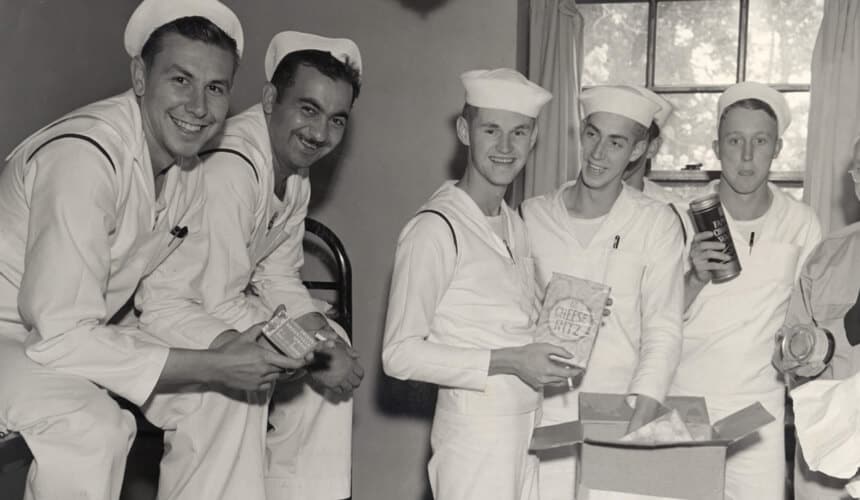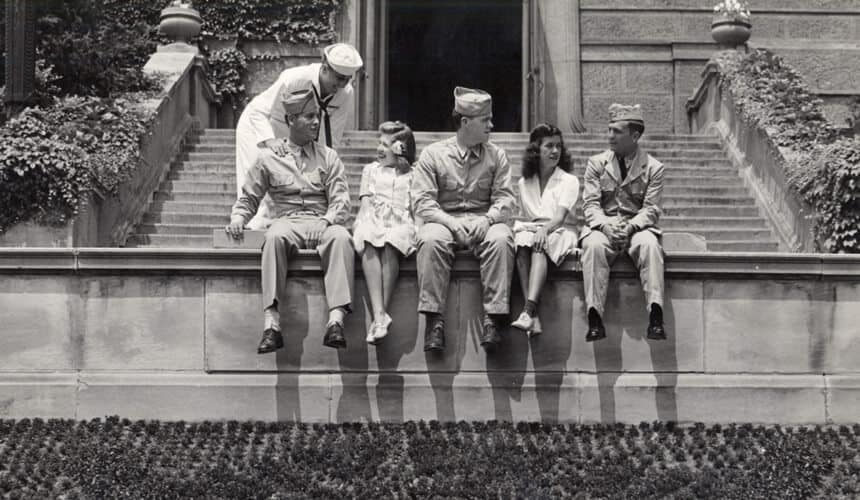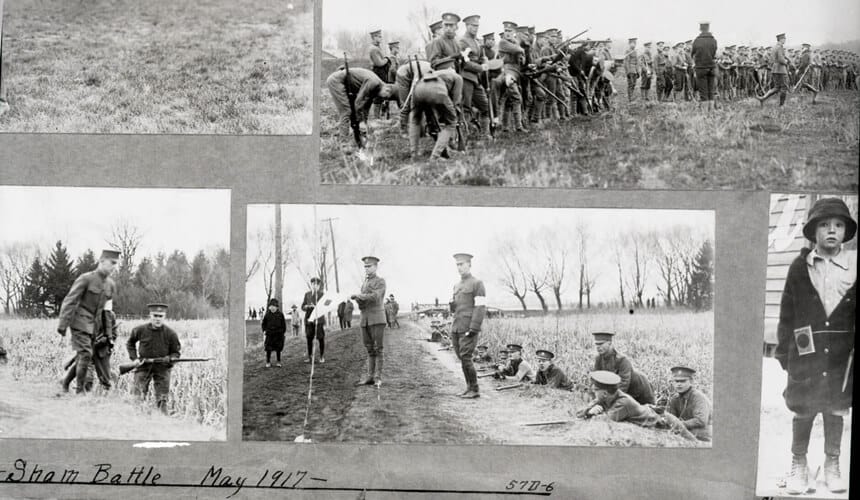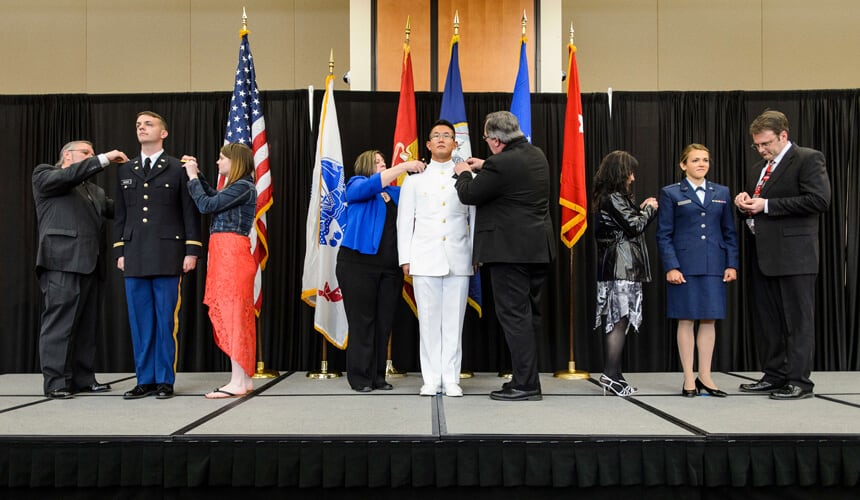Badger History of National Service
The Fighting Badgers: A proud tradition
It’s hard to shake the 1960s images: tear gas on Bascom Hill, club-wielding police, and sometimes-violent protests of the Vietnam War. They are the symbolic shorthand that people often use to cast UW-Madison as a hub of anti-military sentiment, even today.
But in Vietnam, Korea, Iraq, and all of our nation’s other wars, Badgers have served the United States and sometimes paid the ultimate price. Today, UW–Madison is committed to helping veterans and active-duty personnel gain a world-class education.
The campus’s military history dates to 1858, when the University Light Guards were formed to practice drilling. The unit became the University Myrmidons in 1863, as the Civil War raged. One estimate found that of the 50 UW graduates through 1864, 28 had joined the Union army.
In World War I, more UW soldiers headed to the trenches. Following UW president Charles Van Hise’s model of public service, the university sent 10 chemistry staff members and some advanced students to work on gases and explosives; geologists helped with wartime mineral production; and engineers aided in aviation and submarine design.
Van Hise sent a holiday greeting to soldiers just before the armistice was signed: “Through the years to come, we shall proudly recall that it was from our doors you went out to battle; your gallantry will inspire the men and women who come after you and will give a new radiance to the spirit of Wisconsin.”
UW enrollment plunged in World War II. From 1940 to 1944, the number of male students went from 7,700 to 2,300, and many of those were awaiting a draft call. UW scientists and two nuclear accelerators spent years at Los Alamos, as part of the Manhattan Project that developed the atomic bomb and ended the war.
Today, UW–Madison operates the Veteran Services and Military Assistance Center as a resource for military-affiliated students. Army, air force and naval ROTC programs thrive and a new crop of cadets is commissioned annually in a special ceremony.
“ROTC has enriched my college experience by providing me with both student and faculty mentors who genuinely care about my success,” says Army 2nd Lt. Austyn Chervenka BS2016 , who was commissioned in 2016.
 35° F
35° F


